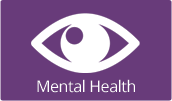How do patients of Taddle Creek Family Health Team access supports through the Mental Health Program?If you are a patient of the Taddle Creek FHT and would benefit from mental health support, please speak to your primary care practitioner. The mental health program offers case management, group therapy and individual therapy supports to patients. Your primary care practitioner will discuss your needs as well as resources you may have available (for example, ability to pay for private psychotherapy) and will send the mental health program a referral. Depending on the service needed, a telephone or in-person intake appointment will be scheduled with a registered social worker. Together, you and the social worker will develop a plan of action that meets your needs. Any patient of the family health team is welcome to attend the single session clinic (Fridays between 9am-12pm in suite 306) in order to speak to a social worker about their mental health needs.
If your child or teenager is experiencing problems emotionally, mentally or behaviourally, speak to your primary care provider. As well, most schools have registered social workers or child and youth workers (CYW) on staff to support students within the school setting. In Ontario, parents can learn more about mental health and connect to agencies in their community that offer supports and resources by going to the Children’s Mental Health Ontario website www.kidsmentalhealth.ca
It is important that you consult with your primary care practitioner, psychiatrist and pharmacist regarding medication management and to take medication only as directed by your doctor. Stopping medications abruptly may lead to withdrawal and unpleasant symptoms. If you would like to stop taking a medication, working with your health care provider to set up a safe taper schedule is very important. In some cases, symptoms may come back after you stop taking the medication.
Psychotherapy or ‘talk therapy’ is an evidence-based method of helping people with mental health difficulties. Individuals receiving psychotherapy increase their understanding of their illness or difficulties; they learn and practice strategies that are helpful in dealing with stress, negative thinking and self-sabotaging behaviour. Psychotherapy can lead to improved relationships, an increase in self-esteem and self-compassion and overall improved sense of well-being. Sometimes, psychotherapy alone is the best treatment for a person, depending on the nature of the difficulties and the severity. For example, research shows that psychotherapy works better in the long-term and is more enduring than medication in mild to moderate depression. Other times, psychotherapy and medications are combined to support individuals improve management of symptoms and increase function. Finding a therapist that is a good fit for you is the most important factor in the outcome of therapy. Look for a therapist who builds trust and emphasizes the importance of a positive therapeutic alliance. As well, work with a therapist that has a well-developed set of interpersonal skills, is adaptive, flexible and collaborative in treatment planning and one who monitors patient progress regularly and remains tuned in to the best research evidence.
There are no one-size-fits all treatments or quick fixes for mental health problems. There are however, a variety of evidence-based or evidence-informed treatment modalities for mental health problems and they include: Cognitive Behaviour Therapy (CBT), Motivational Interviewing (MI), Narrative Therapy, Interpersonal Psychotherapy (IPT), Mindfulness-Based Cognitive Therapy (MBCT), Acceptance and Commitment Therapy (ACT), Solution-Focused Brief Therapy (SFBT), Dialectical Behaviour Therapy (DBT), Emotion-Focused Therapy (EFT), Pharmacotherapy (medications), and psychoeducation. Healthy nutrition, regular physical activity, and adequate, restorative sleep are important to developing and maintaining good mental and physical health. As well, stress reduction techniques and relaxation practice are important in both the recovery from mental health difficulties and in the maintenance of good mental health.
The Social Determinants of Health refers to the primary factors or conditions that impact the health of individuals. Based on decades of research and examination of hundreds of studies related to health and wellness in the Canadian and global context, 14 social determinants of health have been identified according to the document “Social Determinants of Health: The Canadian Facts”. They include:
Income and income distribution, education, unemployment and job security, employment and working conditions, early childhood development, food security, housing, social exclusion, social safety network, health services, Aboriginal status, gender, race and disability.
People of all cultures and backgrounds, occupations, incomes and levels of education and privilege are impacted by mental health problems. It is said that all Canadians are likely to be affected by a mental illness, either personally or through a family member, a friend, or a colleague at some point in life. There is no single cause of mental health problems; it is a multifaceted interaction of many factors that contribute to a person experiencing functional impairment in their mental health.
A Biological-psychological-social (biopsychosocial) view of mental health problems is helpful in understanding risk. Biological factors can describe issues related to brain chemistry, genetics (people do not inherit the illness itself, only the tendency to get it), nutrition, viral infection or issues during fetal development or trauma during birth. Psychological factors can describe issues related to negative patterns of thinking, temperament, IQ, or coping skills. Social factors can describe issues related to a person’s environment or lived context. Social factors can include unemployment and financial stress, family relationships, social isolation and trauma. Please see “What are the Social Determinants of Health” for more information on social factors.
According to Canadian statistics 1-in-5 adults will experience problems with their mental health per year and 1-in-3 at some point in their life. 1-in-5 children and adolescents in Ontario will experience a mental, emotional, or behavioural difficulty that leads to functional impairment and requires treatment.
1 Smetanin et al (2011). The life and economic impact of major mental illnesses in Canada: 2011-2041.
Addiction is a commonly used term; according to CAMH, a simple way of describing addiction is the presence of the 4 Cs: 1. Craving 2. loss of Control of amount or frequency of use 3. Compulsion to use and 4. use despite Consequences.
People experiencing difficulty or suffering may come to depend on a variety of substances in order to have short-term relief from psychological or physical pain and distress. Regular reliance and use of a substance as a break can become a chronic habit and difficult to stop. Depending on the substance, continued or heavy use, can change the body and brain and cause incapacitating withdrawal. There is a no quick fix solution for addiction. Treatment for addiction includes harm reduction, psychotherapy, rehab programs, use of self-help resources such as support groups and/or medications.
Mental illness, mental disorders or mental difficulties can take many forms and fall into different categories. Some can be a short-term condition and others are chronic, life-long conditions. Some can be referred to as psychiatric disorders and all have specific treatment protocols. The following examples are not meant to be a complete outline of all of the different conditions or categories.
Anxiety disorders include generalized anxiety disorder, panic disorder, post-traumatic stress disorder and social anxiety.
Mood disorders include depression, post-partum depression, seasonal affective disorder and bipolar disorder.
Obsessive Compulsive and Related Disorders include body dysmorphic disorder, trichotillomania (hair-pulling disorder), hoarding disorder and obsessive-compulsive disorder.
Psychotic disorders include schizophrenia, delusional disorder and schizoaffective disorder.
Concurrent disorders is a term used to refer to co-occurring addiction and mental health problems; it encompasses a wide range of combinations of problems, such as bipolar disorder and heroin dependence or an anxiety disorder and problem gambling.
Eating disorders include bulimia nervosa, binge eating disorder and anorexia nervosa.
Personality disorders include anti-social personality disorder, narcissistic personality disorder and borderline personality disorder.
Mental illness, just like physical illness, is a component of the human condition. Mental illness can describe a variety of mental health issues. People experiencing functional impairment in how they think, feel, act or relate to others (or a combination of these) may be living with a mental illness.
Mental illness can be described as a mental disorder, poor mental health, mental health difficulty, etc. The term Mental Illness can create a belief of separateness and otherness and can be stigmatizing in a way that a physical illness is usually not. Negative perceptions and stereotypes about mental illness can be devastating for individuals who are struggling and may prevent some from seeking help when they need it. There is a range of effective treatments for people who are struggling with poor mental health. With proper treatment and support, people have the capacity to recover from mental illness and lead meaningful lives.
We all have mental health, just as we have physical health. Having mental health is not just an absence of mental illness but a state of overall well-being in all parts of life. Our physical health and mental health are completely interconnected and maintaining good health requires support, regular effort and a proactive stance.
 Introduction
Introduction If you experience, in an ongoing or repetitive way: anxiety, depression, trauma symptoms, anger, frustration, sadness, worry, loss of sleep, relationship or family conflict, substance use such that your performance or functioning in important personal relationships or work is affected, you would m benefit from a primary care referral to this program. It is important to note that Taddle Creek individual psychotherapy is our most requested mental health service. Because of the high demand, Taddle Creek FHT tries to refer to our in-house individual psychotherapy services only if patients cannot receive these services elsewhere. Our focus is on serving those who cannot afford to pay for private psychotherapy. Your primary care provider will have an open discussion with you about your financial ability to pay privately for counseling, even at a sliding scale rate. All Taddle Creek FHT patients are able to access all of our group services, Friday morning single session drop-in clinics.
If you experience, in an ongoing or repetitive way: anxiety, depression, trauma symptoms, anger, frustration, sadness, worry, loss of sleep, relationship or family conflict, substance use such that your performance or functioning in important personal relationships or work is affected, you would m benefit from a primary care referral to this program. It is important to note that Taddle Creek individual psychotherapy is our most requested mental health service. Because of the high demand, Taddle Creek FHT tries to refer to our in-house individual psychotherapy services only if patients cannot receive these services elsewhere. Our focus is on serving those who cannot afford to pay for private psychotherapy. Your primary care provider will have an open discussion with you about your financial ability to pay privately for counseling, even at a sliding scale rate. All Taddle Creek FHT patients are able to access all of our group services, Friday morning single session drop-in clinics.